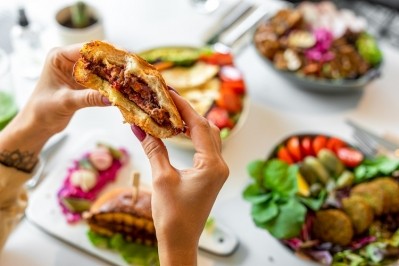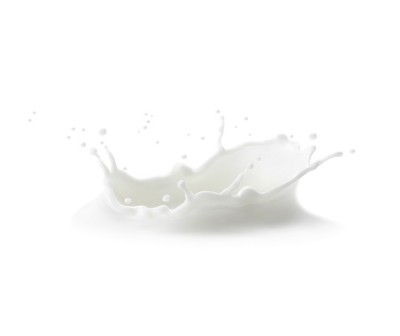2D-printed plant-based milk: What, why and how?

In the food industry, 3D printing allows for automated customisability. The technology is used to make everything from gummies to plant-based meat and seafood, with innovators backing its precision and potential to scale.
Conversely, less is heard about 2D printing. But that’s the technology German food brand Veganz is leveraging for its new oat milk product. Coined Mililk, the oat offering claims a host of benefits, ranging from fewer ingredients to lower CO2 impact.
What is 2D-printed plant-based milk?
The 2D-printed drink concept was developed back in 2019 by foodservice majors Starbucks and McDonald’s in the US. Veganz purchased the patents from a New York-based lab in 2022.
Since then, the company has been working to further develop the products and importantly, make them scalable.
The result is a two-litre pack of 2D-printed oat drink, which Veganz has been selling since October last year. “We print the mass of oat directly after fermentation using a screen printing process on an industrial printer,” Veganz founder and CEO Jan Bredack told FoodNavigator.
Consumers then put as much of the oat base as required in a blender, add water, and mix for 30 seconds. Mililk is being marketed for use in cereals, shakes, cocktails, cooking and baking. As the product’s full name suggests – Mililk Oat Barista – it’s also designed for ‘every conceivable’ coffee variation.

Customer feedback has been ‘only positive’ so far, the founder revealed. Although previously only available direct-to-consumer, Mililk is now selling B2B in Austria and Germany, and recently announced own-brand partnerships with supermarket retailers Rewe and Penny.
The benefits of a flat-packed milk alternative
At an ingredients level, how does 2D-printed oat milk compare to its more common (3D) counterparts? According to Veganz, its offering uses different and fewer ingredients.
“Mililk is a 100% natural product without artificial additives,” we were told. “Since we have no water in the product, we achieve a long shelf life of 24 months without heating or preservatives.”
Five ingredients make up the formulation: oats (fermented and gluten-free), rapeseed oil, locust bean gum, sea salt and bourbon vanilla.
But it’s the sustainability benefits the company is most touting. Compared to conventional carton packaging, Veganz Mililk is 85% lighter and uses 94% less packaging. It also saves on space.
The founder said he finds it ‘unbelievable’ that oat drinks in milk cartons today consist of around 90% water, which are transported around in ‘heavy cartons’ and ‘end up causing a lot of waste’.
“We all have clean drinking water from the tap at home, so we have eliminated it from the recipe with Mililk.”
2D-printed plant-based milk and the foodservice potential

Veganz is currently selling its 2D-printed oat milk into Germany, Austria and Switzerland. But customers in other countries – from Spain to the Netherlands, Portugal, Ireland and the Nordics – are lining up.
With 97% less packaging (and therefore saving 97% space), it may be in the foodservice sector the brand finds the most potential. Veganz is already selling into this sales channel, but told us it will ramp in mid-June.
The company sees ‘great potential’ in foodservice, we were told. “We currently have to expand our production capacities in order to be able to serve the demand. Many customers are still waiting for the products.”
In the meantime, Veganz continues to work on product development, revealing ‘there are still some innovations to come’.






